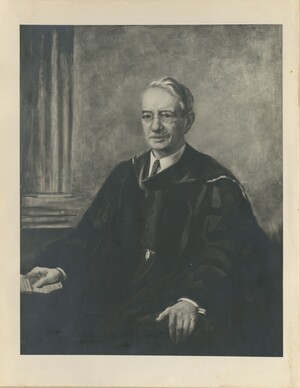- John Philip Trinkaus
- Early Life
- Trink’s Undergraduate Research at Wesleyan University
- Trink's First Visit to the MBL
- Trink and the MBL Embryology Course
- Trink's Graduate Research at Johns Hopkins University
- New Location & New Research Problem
- Fundulus as Choice Organism
- Trink's work on the Yolk Syncytial Layer (YSL) in Fundulus Epiboly
- Trink’s MBL Research on Cell Motility with C. A. Tickle
- Conclusion
- Alfred Huettner
- Cathy Norton
- China at the MBL: 1920-1945
- Collecting at the MBL
- Cyclins at the MBL
- Edmund Beecher Wilson
- Edwin Grant Conklin
- Envisioning the MBL: Whitman’s Efforts to Create an Independent Institution
- Eugene Bell Center for Regenerative Biology and Tissue Engineering 2010-2018
- Shinya Inoué: Capturing Dynamic Cellular Processes
- Squids, Axons, and Action Potentials: Stories of Neurobiological Discovery
- The Biological Bulletin
- The Ecosystems Center (1975-2018)
- The MBL Embryology Course 1939
- The Marine Biological Laboratory
- The Neurobiology of Vision at the MBL
- Using Biodiversity
- Collecting Methods & Surveys
- “Report upon the Invertebrate Animals of Vineyard Sound and Adjacent Waters, with an account of the Physical Features of the Reg
- “A Biological Survey of the Waters of Woods Hole and Vicinity. Part III. A Catalogue of the Marine Fauna” (1913)
- Methods for Obtaining and Handling Marine Eggs and Embryos (1957)
- Experiments
- Supply & Sale
- Collecting Methods & Surveys
- Viktor Hamburger and Experimental Embryology
- Visual Media in Embryology
- Woods Hole 150
In Philadelphia, Conklin participated in many events, discussing the intersection of evolution and religion. For example, he worked with Liberty Hyde Bailey to organize a meeting in 1896 on “Factors of Organic Evolution” for the American Philosophical Society, and became an active member of that organization the next year. In 1909, he spoke at a commemoration of Darwin’s death on “The World’s Debt to Darwin.”
Many biologists spoke about the importance of evolution, of course. Conklin had impact in a wider audience because he also spoke persuasively about his equal commitment to being a Methodist. It is possible to embrace both science and religion, he insisted. His sociability and rhetorical talent helped him reach audiences that other biologists did not. Some have argued that his interest in religion also influenced Conkin’s acceptance of a type of eugenics, with its hopes of improving human populations through informed breeding.
- Allen, Garland E. “Conklin, Edwin Grant.” Dictionary of Scientific Biography 3: 389–91.

